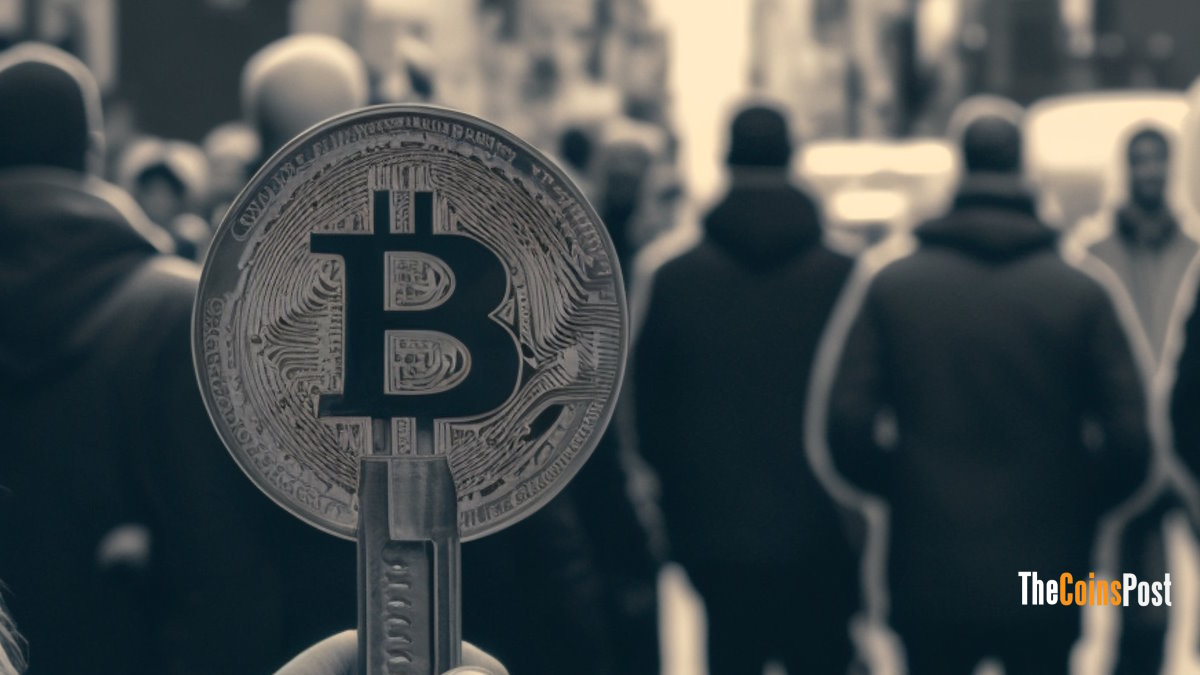Bitcoin
Why Most Cryptocurrency Exchanges ask For KYC

Know-Your-Customer (KYC) is a process that most cryptocurrency exchanges require their customers to go through in order to use their platform. This process involves providing personal information such as name, address, and government-issued identification number to the exchange. While it may be seen as an inconvenience by some, but KYC is an important aspect of maintaining the security and integrity of the cryptocurrency ecosystem.
Contents
1- Legal compliance
Legal compliance is a key reason why online cryptocurrency exchanges ask for know-your-customer (KYC) information. Anti-money laundering (AML) regulations, which are designed to prevent money laundering and other financial crimes, require financial institutions to verify the identity of their customers and to monitor transactions for suspicious activity. By collecting KYC information from their customers, online cryptocurrency exchanges can demonstrate that they are taking steps to comply with these regulations and to prevent financial crime.
When it comes to legal compliance, online cryptocurrency exchanges must comply with AML regulations and other laws applicable to their jurisdiction. These regulations are usually set by government bodies such as the Financial Action Task Force (FATF) and the US Financial Crimes Enforcement Network (FinCEN). These regulations require exchanges to implement certain measures such as KYC, transaction monitoring, and suspicious activity reporting.
KYC is a crucial part of AML compliance, as it helps exchanges to identify and verify the identity of their customers. This includes collecting personal information such as name, address, and government-issued identification number. Additionally, exchanges may also be required to collect information about the source of funds and the intended use of the funds. By collecting this information, exchanges can ensure that they are not doing business with individuals or entities that are involved in illegal activities such as money laundering or terrorism financing.
Furthermore, online cryptocurrency exchanges are also required to comply with other laws such as the USA PATRIOT Act, which requires financial institutions to implement measures to prevent money laundering and the financing of terrorism. By complying with these regulations, exchanges can ensure that they are operating within the law, and they can avoid penalties and fines.
2- Risk Management
Risk management is another important reason why most cryptocurrency exchanges ask for know-your-customer (KYC) information. By collecting and verifying the identity of their customers through the KYC process, exchanges can mitigate the risk of fraudulent activities and protect themselves and their customers from financial crimes.
One of the main risks that cryptocurrency exchanges face is money laundering. Money laundering is the process of disguising the proceeds of illegal activities as legitimate funds. By collecting and verifying the identity of their customers through the KYC process, exchanges can ensure that they are not doing business with individuals or entities that are involved in money laundering.
Another risk that cryptocurrency exchanges face is terrorist financing. Terrorist financing is the provision or collection of funds with the intention that they should be used to carry out terrorist acts. By collecting and verifying the identity of their customers through the KYC process, exchanges can ensure that they are not doing business with individuals or entities that are involved in terrorist financing.
Identity theft is also a risk that cryptocurrency exchanges face. By collecting and verifying the identity of their customers through the KYC process, exchanges can ensure that they are not doing business with individuals or entities that have stolen identities.
3- Protecting The Integrity of The Cryptocurrency Ecosystem
AML regulations help to prevent the use of cryptocurrencies for illegal activities, and by implementing KYC, online exchanges can help to protect the integrity of the cryptocurrency ecosystem as a whole.
4- Avoiding Sanctions
Avoiding sanctions is another reason why most cryptocurrency exchanges ask for know-your-customer (KYC) information. Sanctions are economic or financial restrictions imposed by governments or international organizations to achieve foreign policy or national security objectives. By collecting and verifying the identity of their customers through the KYC process, exchanges can ensure that they are not doing business with individuals or entities that are subject to sanctions.
When it comes to sanctions, cryptocurrency exchanges must comply with the regulations set by government bodies such as the Office of Foreign Assets Control (OFAC) in the United States, and similar organizations in other countries. These regulations prohibit transactions with individuals or entities that are designated as Specially Designated Nationals (SDN) or are otherwise blocked by sanctions.
KYC is a crucial part of sanctions compliance, as it helps exchanges to identify and verify the identity of their customers. This includes collecting personal information such as name, address, and government-issued identification number. Additionally, exchanges may also be required to collect information about the source of funds and the intended use of the funds. By collecting this information, exchanges can ensure that they are not doing business with individuals or entities that are subject to sanctions.
Furthermore, online cryptocurrency exchanges are also required to implement screening processes to detect and prevent transactions with individuals or entities that are subject to sanctions. This includes the use of automated software that compares customer information against sanctions lists, and regular updates to these lists.
5- Maintaining The Trust of The Customer
Online cryptocurrency exchanges have the responsibility to protect the personal information of their customers and by collecting and verifying their identity through the KYC process, they can maintain the trust of their customers and provide them with a secure and compliant service.
Conclusion
In conclusion, online cryptocurrency exchanges ask for know-your-customer (KYC) information for the purpose of anti-money laundering (AML) to comply with legal regulations, mitigate risks, protect the integrity of the cryptocurrency ecosystem, avoid sanctions and maintain the trust of the customer. This helps to prevent financial crimes and ensure the security of the platform for its users.
Bitcoin
Telecom Giant Vodafone Bringing Crypto to the Masses Via SIM Cards

The major telecom company Vodafone has unveiled an ambitious plan to integrate cryptocurrency wallets directly into the SIM cards used by mobile phones on its network. This cutting-edge move aims to make blockchain technology and crypto easily accessible to millions of smartphone users worldwide.
What’s Happening?
Vodafone, one of the largest mobile operators based in the UK, intends to combine crypto wallets with the subscriber identity module (SIM) cards inside phones. SIM cards are little chips that allow mobile devices to connect to a carrier’s network.
By embedding a crypto wallet into these ubiquitous SIM cards, Vodafone wants to introduce blockchain and virtual currency technology to the masses through the smartphones we all use daily.
The Bigger Blockchain Picture
This crypto SIM integration is part of Vodafone’s bigger blockchain strategy. The company has developed its own “PairPoint Digital Asset Broker” platform to enable secure digital identities and transactions across different blockchains.
Vodafone’s blockchain lead David Palmer emphasized in an interview that mobile phones are the main way billions access digital services and commerce. So partnering blockchain with SIM card tech is crucial for widespread adoption.
By 2023, there will be over 8 billion mobile phones in use globally. And estimates suggest crypto wallets on smartphones could reach 5.6 billion by 2030 as digital money goes mainstream.
Financial Restructuring
The crypto wallet announcement comes as Vodafone seeks to restructure its finances and raise billions in new funds through debt offerings and loans over the next couple years.
The company plans to take on $2.9 billion in total debt, including $1.8 billion in direct loans. Some of this financial overhaul relates to issues at Vodafone’s Indian subsidiary Vodafone Idea Ltd.
While navigating these monetary hurdles, Vodafone still sees major opportunities in emerging technologies like blockchain and aims to be an innovator helping drive mainstream crypto adoption through the SIM card strategy.
Bitcoin
No Evidence of Hack, Says Bitfinex CTO Amid Ransomware Gang’s Allegations

In the world of cybersecurity, claims of data breaches can cause significant concern and speculation. Recently, a ransomware group named FSOCIETY claimed to have successfully hacked several organizations, including the cryptocurrency exchange Bitfinex. However, Bitfinex’s Chief Technology Officer (CTO), Paolo Ardoino, has dismissed these rumors, stating that a thorough analysis of their systems revealed no evidence of a breach.
According to Ardoino, who is also the CEO of Tether, less than 25% of the email addresses allegedly stolen from Bitfinex’s servers match legitimate users. This casts doubt on the validity of FSOCIETY’s claims regarding the supposed hack.
The ransomware group, styled after the fictional hacking group from the TV show “Mr. Robot,” claimed to have breached several victims, including Rutgers University, consulting firm SBC Global, and a cryptocurrency exchange they referred to as “Coinmoma,” which is likely a misspelling of Coinmama.
Ardoino expressed skepticism about the group’s claims, stating that if they had indeed hacked Bitfinex, they would have demanded a ransom through the exchange’s bug bounty program, customer support channels, emails, or social media accounts. However, Bitfinex received no such requests from FSOCIETY.
Furthermore, Ardoino shared a message from a security researcher suggesting that the real motivation behind the alleged hacks might be to promote FSOCIETY’s ransomware tools, which they reportedly sell access to in exchange for a subscription fee and a commission on stolen profits. Ardoino questioned the group’s need to sell their tools for $299 if they had truly hacked a major exchange like Bitfinex.
It’s worth noting that Bitfinex has previously fallen victim to a significant hack in 2016, resulting in the theft of a substantial amount of Bitcoin. Two individuals, including crypto rapper ‘Razzlekhan,’ pleaded guilty to money laundering charges in connection with that incident.

While the claims made by FSOCIETY have yet to be verified by the alleged victims, Bitfinex’s CTO remains firm in his stance that no breach has occurred. As cybersecurity threats continue to evolve, it is crucial for organizations to remain vigilant and take proactive measures to protect their systems and users’ data.
Bitcoin
Indian Police Seize 268 Bitcoins Worth $17 Million in Crypto Bust

Indian authorities have seized a large sum of bitcoins from a resident of Haldwani, a city in the northern Indian state of Uttarakhand. The seized cryptocurrency stash of 268 bitcoins is worth around $17 million at current prices.
The Enforcement Directorate (ED), a law enforcement agency that investigates financial crimes, carried out the bitcoin seizure. They arrested Parvinder Singh from his home in Haldwani after a raid prompted by information from US authorities.
Singh is allegedly part of an international drug trafficking syndicate called “The Singh Organization.” The criminal group used dark web marketplaces like Silk Road to sell drugs in the US, UK and other European countries.
To hide their illegal activities, the syndicate laundered the drùg money by converting it into bitcoins and other cryptocurrencies. ED officials said Singh and his associates received around 8,488 bitcoins over the years from their drùg sales on the dark web.
The bitcoin seizure was a rare collaboration between Indian and US law enforcement agencies. American officials have been investigating Singh and his accomplice Banmeet Singh for their roles in the international drùg cartel.
Cryptocurrencies like bitcoin are popular among criminals due to the anonymity they provide. However, this case shows authorities are getting better at tracing illegal crypto transactions and bringing the perpetrators to justice.
The investigation is still ongoing, and more arrests and seizures are expected as officials unravel the entire money laundering operation of The Singh Organization.
-

 Altcoins4 years ago
Altcoins4 years agoProject Review: Pi Network, a New Scam Project in Town
-

 Bitcoin4 years ago
Bitcoin4 years agoBitcoin Worth $1.2M Seized From Arrested Indian Hacker
-

 Altcoins5 years ago
Altcoins5 years agoReview: Play Arcade Games Inside ARK Wallet And Win Some Free Cryptocurrency
-

 Blockchain5 years ago
Blockchain5 years agoA Full Review: Utopia A New Decentralized P2P Blockchain
-

 Bitcoin5 years ago
Bitcoin5 years agoAnother Exit Scam: NovaChain Shuts Down
-

 Exchanges5 years ago
Exchanges5 years agoCrex24 Will Require KYC Verification
-

 Bitcoin5 years ago
Bitcoin5 years agoJohn McAfee Has Gone Missing
-

 Altcoins5 years ago
Altcoins5 years agoElrond Partners With ChainLink


















